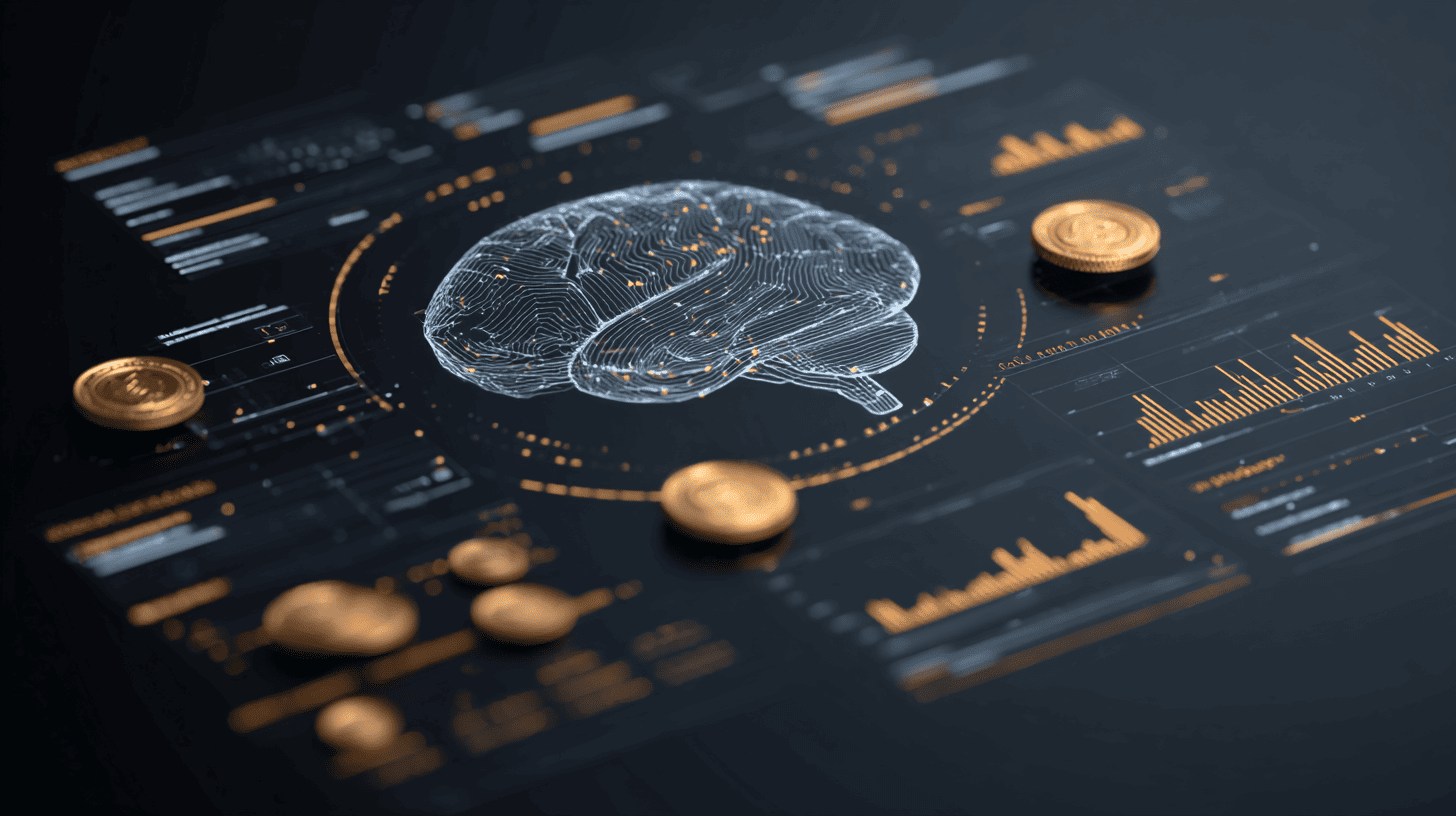How Quantum Computing is Transforming Application Development
Alexander Stasiak
Apr 14, 2025・15 min read
Table of Content
Introduction to Quantum Computing
Basics of Quantum Computing
Key Differences from Classical Computing
Impact on Application Development
Speed and Efficiency Improvements
Enhanced Problem-Solving Capabilities
Real-World Applications
Innovations in Software Development
Transforming Data Analysis
Challenges and Considerations
Current Limitations in Technology
Security and Privacy Concerns
Future Prospects
Potential for Growth and Expansion
Preparing for a Quantum Future
Looking to integrate cutting-edge technologies into your digital products?
Our experts help startups and enterprises explore practical uses of quantum computing.👇
Quantum computing is revolutionising the world of application development by offering unprecedented computational power and capabilities. Unlike traditional computers, which process data in binary, quantum computers use quantum bits, or qubits, allowing them to perform complex calculations at incredible speeds. This breakthrough has the potential to solve problems that are currently impossible for classical computers, opening new horizons for developers. As we delve into this emerging field, we will explore how quantum computing is set to transform the landscape of application development, providing insights into its practical applications and future possibilities. Through this exploration, we will gain a clearer understanding of how quantum computing could reshape the digital world.
Introduction to Quantum Computing
Basics of Quantum Computing
Quantum computing stands apart from classical computing through its unique principles rooted in quantum mechanics. At its core are qubits, which differ from traditional bits as they can represent both 0 and 1 simultaneously, thanks to a phenomenon known as superposition. This capability allows quantum computers to process vast amounts of data at once, making them incredibly powerful. Entanglement, another quantum principle, enables qubits that are entangled to instantly affect each other, regardless of the distance between them. This leads to faster information processing and computation speeds that are unattainable with classical systems. Quantum computing also leverages interference to amplify correct solutions and cancel out incorrect ones. These foundational concepts collectively enable quantum computers to tackle complex problems, such as cryptography and optimisation, that are currently beyond the reach of traditional computing methods. Understanding these basics is crucial for appreciating the transformative potential of quantum computing in application development.
Key Differences from Classical Computing
Quantum computing fundamentally differs from classical computing in several key aspects. While classical computers rely on bits to represent data as either 0 or 1, quantum computers use qubits, which can exist in multiple states simultaneously. This allows quantum systems to process multiple possibilities at once, significantly increasing computational power. Another major difference is the use of quantum entanglement, a phenomenon where qubits become interconnected, meaning the state of one qubit can instantly influence another, regardless of distance. This is a contrast to classical systems where data is processed sequentially. Additionally, classical computers use deterministic algorithms, whereas quantum computers often utilise probabilistic algorithms, which can result in different outcomes from the same input. Due to these differences, quantum computing is not just a faster version of classical computing; it represents a completely new paradigm that can solve certain problems much more efficiently than classical methods. Understanding these differences is crucial for leveraging quantum computing's potential.
Impact on Application Development
Speed and Efficiency Improvements
Quantum computing promises remarkable advancements in speed and efficiency, potentially transforming application development. By harnessing the power of qubits and quantum principles like superposition and entanglement, quantum computers can perform complex calculations far quicker than classical systems. For example, tasks that would take traditional computers years or even centuries to solve can be completed in mere seconds or minutes by quantum computers. This leap in processing speed opens up new possibilities for developers, enabling them to solve intricate problems in fields such as cryptography, optimisation, and machine learning. Applications that require analysing vast datasets, such as financial modelling or drug discovery, can greatly benefit from this increased efficiency. Moreover, quantum algorithms can streamline processes by reducing computational complexity, allowing for more elegant and effective solutions. As quantum computing technology continues to evolve, its speed and efficiency improvements will likely lead to breakthroughs in application development, pushing the boundaries of what is currently achievable.
Enhanced Problem-Solving Capabilities
Quantum computing vastly enhances problem-solving capabilities, offering novel solutions to complex challenges that are beyond the reach of classical computers. This is largely due to its ability to process multiple possibilities simultaneously through qubits. Problems involving optimisation, such as logistics and network routing, can be approached more effectively with quantum algorithms. For instance, quantum computing can optimise supply chain management by quickly evaluating numerous potential configurations to identify the most efficient route. Additionally, quantum's prowess in handling complex simulations makes it particularly useful in scientific research, enabling more accurate modelling of molecular structures for drug discovery or climate change predictions. Its capability to efficiently factor large numbers also holds promise for advancing cryptography, providing more secure encryption methods. As developers and researchers harness these enhanced problem-solving abilities, quantum computing is set to revolutionise various industries, paving the way for innovative applications and solutions previously deemed unattainable by classical computational means.
Real-World Applications
Innovations in Software Development
Quantum computing is driving innovations in software development, pushing the boundaries of how software can be conceived and executed. As quantum computers become more accessible, developers are beginning to experiment with quantum algorithms to create software that can solve problems previously deemed intractable. New programming languages and frameworks are being developed to accommodate quantum logic, which fundamentally differs from classical programming. This leads to the creation of hybrid applications that leverage both classical and quantum resources, optimising performance across different types of tasks. For instance, quantum-inspired algorithms are already being used in machine learning to enhance pattern recognition and data analysis capabilities. These innovations are not only reshaping existing software paradigms but also creating entirely new fields of study within computer science. As the quantum ecosystem expands, software developers will play a crucial role in translating quantum potential into practical tools and applications, opening new avenues for technological advancement and industry disruption.
Transforming Data Analysis
Quantum computing is set to transform data analysis by providing unprecedented processing power and speed. Traditional data analysis methods often struggle with large datasets due to computational limits. Quantum computing overcomes these barriers through its ability to evaluate multiple possibilities simultaneously, facilitating the analysis of complex datasets much faster than classical systems. For instance, quantum algorithms can enhance search functions, optimisation tasks, and classification processes, making them particularly useful in industries that rely heavily on data, such as finance, healthcare, and retail. In finance, quantum computing could improve risk assessment models and optimise trading strategies by quickly analysing market trends. In healthcare, it can accelerate genomic sequencing and drug discovery by processing vast amounts of biological data. As quantum technology continues to evolve, its application in data analysis will not only increase efficiency but also uncover new insights, driving innovation and better decision-making processes across various fields.
Challenges and Considerations
Current Limitations in Technology
Despite its potential, quantum computing faces several technological limitations that hinder its widespread adoption. One major challenge is the stability of qubits, which are highly susceptible to errors from environmental disturbances like temperature fluctuations and electromagnetic radiation. This instability necessitates complex error correction methods, which are not yet fully developed. Additionally, the current quantum computers are known as Noisy Intermediate-Scale Quantum (NISQ) devices. They are not powerful enough to outperform classical computers in most practical applications. There is also a lack of standardisation in quantum programming languages and frameworks, complicating the development of quantum software. Furthermore, the high cost and specialised infrastructure required to operate quantum computers, such as cryogenic cooling systems, make them inaccessible to many organisations. Addressing these limitations will require significant advancements in both hardware and software technologies, as well as increased collaboration across the scientific community, to realise the full potential of quantum computing in application development.
Security and Privacy Concerns
The advent of quantum computing presents significant security and privacy concerns, particularly regarding data encryption. Quantum computers have the potential to break widely used cryptographic algorithms, such as RSA and ECC, which are the backbone of current security systems. This is because quantum algorithms, like Shor's algorithm, can factor large numbers exponentially faster than classical methods, posing a threat to the encryption that secures sensitive data, financial transactions, and communications. This impending risk necessitates the development of quantum-resistant encryption methods, known as post-quantum cryptography. These new algorithms aim to safeguard information against future quantum attacks. However, the transition to such systems poses challenges, including standardisation and widespread implementation. Moreover, the potential for quantum computers to decrypt data retrospectively raises concerns about data privacy and the need for immediate action to protect information. Addressing these security and privacy issues is crucial to ensuring that quantum computing can be safely integrated into existing technological frameworks.
Future Prospects
Potential for Growth and Expansion
The potential for growth and expansion in the field of quantum computing is immense, with many predicting it could revolutionise several industries. As technological barriers are gradually overcome, quantum computing is expected to become more accessible, leading to broader adoption across different sectors. This expansion will likely spur innovation, with new applications emerging in fields such as artificial intelligence, pharmaceuticals, and logistics. Industries that rely on solving complex optimisation problems, such as transportation and energy, stand to benefit significantly from quantum advancements. Additionally, as investment in quantum research and development increases, we can expect improvements in quantum hardware and software, making the technology more viable for commercial use. Collaboration between academia, industry, and government will also play a critical role in fostering growth. As the ecosystem matures, quantum computing is poised to create new business opportunities and reshape existing markets, driving economic growth and technological progress worldwide.
Preparing for a Quantum Future
Preparing for a quantum future involves strategic planning and adaptation across various facets of technology and industry. Organisations need to invest in research and education to build a workforce skilled in quantum computing principles and practices. This includes incorporating quantum theory into academic curricula to train the next generation of scientists and engineers. Companies should also start exploring quantum technologies by investing in pilot projects and collaborations with quantum computing firms. Moreover, developing quantum-resistant security protocols is imperative to safeguard data against future quantum threats. Policymakers will need to establish regulations and standards that ensure the safe and ethical use of quantum technologies. As quantum computing continues to evolve, staying informed about advancements and trends will be vital for businesses and individuals alike. Embracing these preparations will enable smoother integration of quantum computing into existing systems, ensuring that society can fully harness the transformative potential of this emerging technology.
Digital Transformation Strategy for Siemens Finance
Cloud-based platform for Siemens Financial Services in Poland


You may also like...

Generative ai in financial services
Generative AI is redefining how financial services work — turning data into insights, automating complex tasks, and improving decision-making. This article explains how AI supports smarter, faster, and more secure financial operations.
Alexander Stasiak
Oct 31, 2025・10 min read

Generative AI in Finance: A Clear Guide for All
Most financial firms waste hours creating reports that lack real insight. Generative AI changes that — producing smarter summaries, predictions, and tailored advice in seconds.
Alexander Stasiak
Nov 05, 2025・10 min read

Digital transformation in finance
The financial industry is undergoing a massive digital shift. From AI-driven insights to cashless payments, technology is redefining how we manage, invest, and interact with money. Here’s what every professional should know to stay ahead.
Alexander Stasiak
Oct 28, 2025・10 min read
Let’s build your next digital product — faster, safer, smarter.
Book a free consultationWork with a team trusted by top-tier companies.








